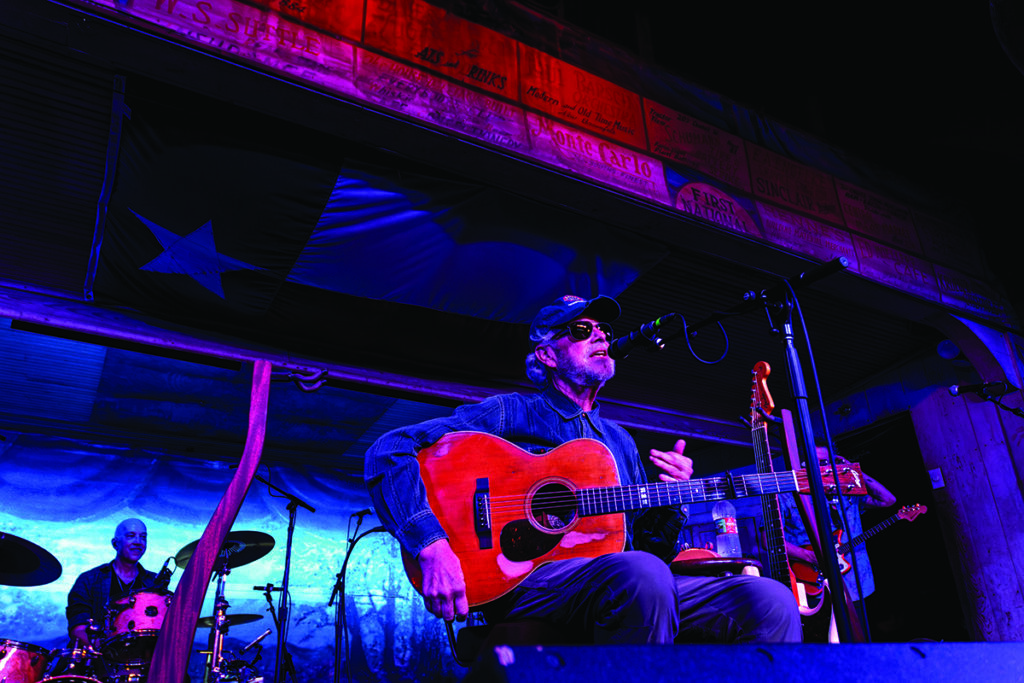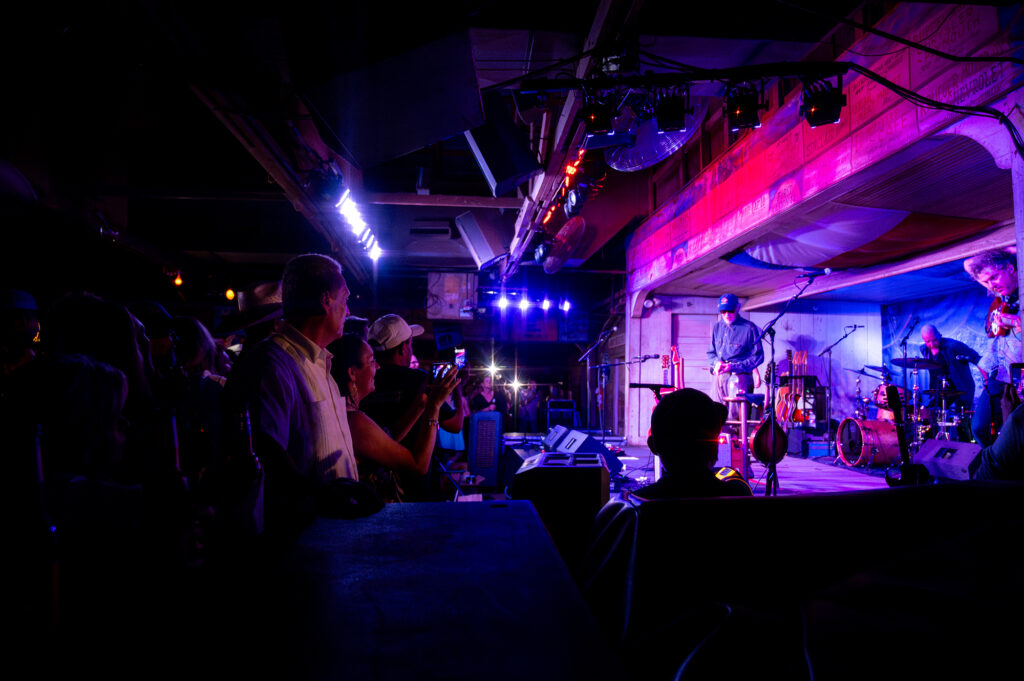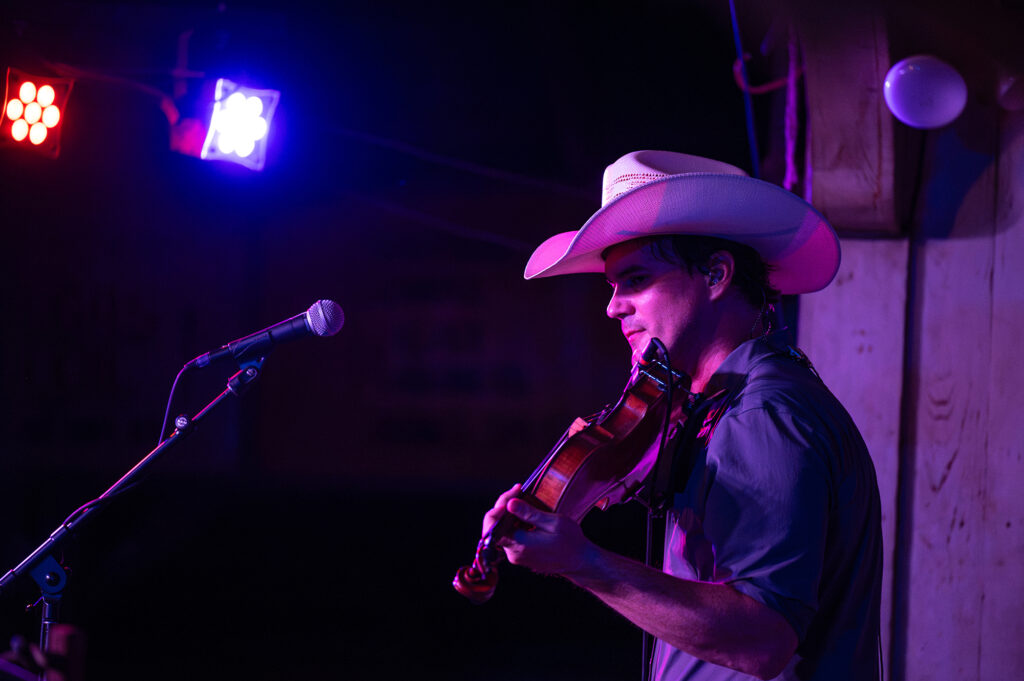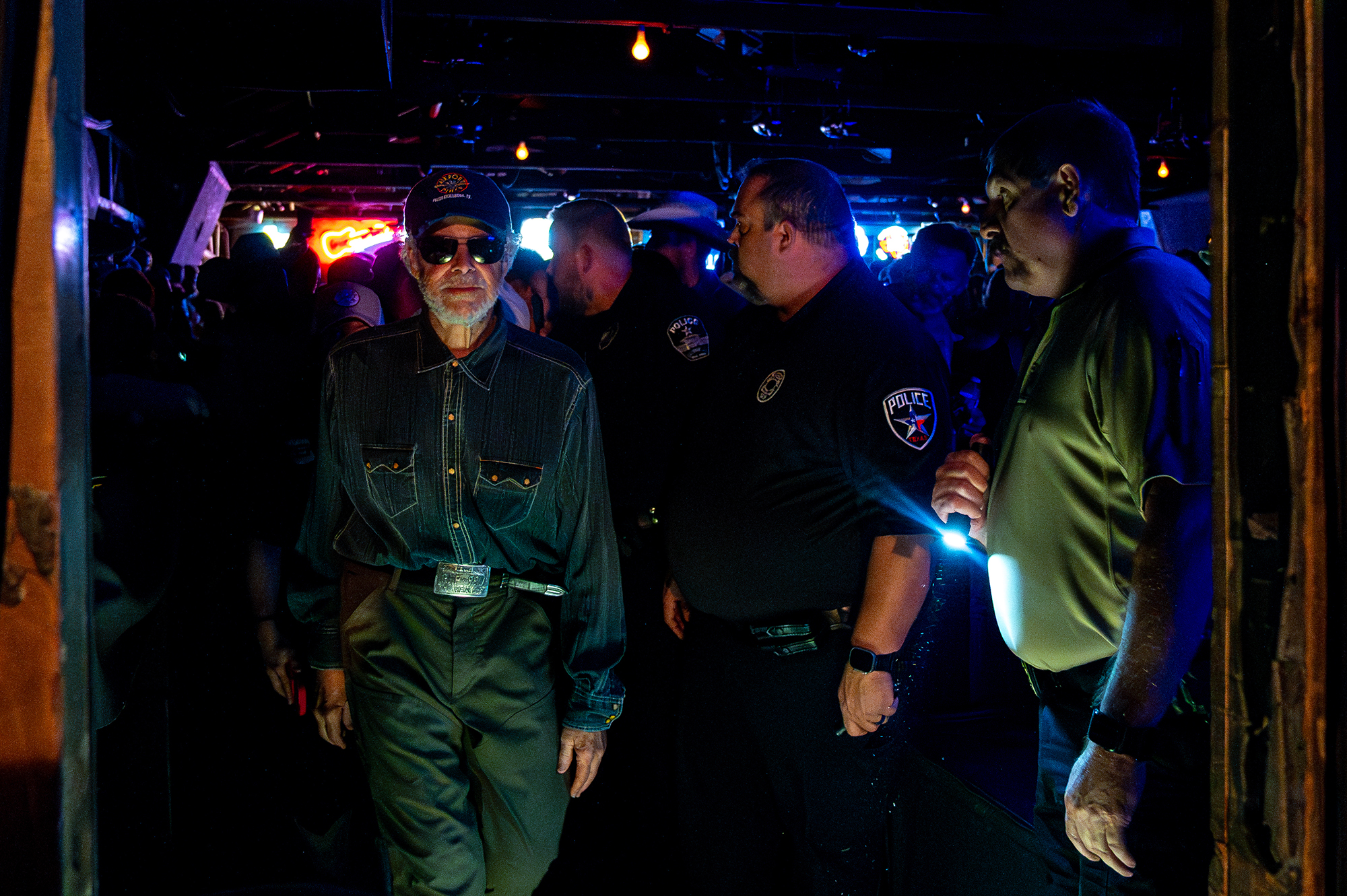Thirty years ago, there was an explosion in the Texas Hill Country.
Robert Earl Keen was the fuse, his live shows the bomb. Rowdy fans stood and yelled and chanted and sang and drank and drank and drank. Historic venues were sometimes left a little worse for wear, and many fans much more so, if you’re counting the hangovers.
Keen was a singer-songwriter, ordained by the Kerrville Folk Festival, where he won the New Folk Songwriting Competition in 1983. And if he wasn’t quite a folk artist, he was used to playing his narrative-driven songs in small rooms, for maybe 100 people at most.
Now he was a star.

“It was somewhat overwhelming,” Keen said in an early June interview from his home in Kerrville. “Really, it came on so fast. I mean, after playing to, you know, little-bitty rooms, I was playing to thousands and thousands of people. And I’m not sure I really had a real grip on how to handle that, how to embrace that.”
Sometimes it was too much. Keen recalled performing at the 1998 Willie Nelson Fourth of July Picnic in Luckenbach, just ahead of Emmylou Harris and Buddy Miller. Despite raucous receptions at previous Picnics, Keen and his band only got 10 minutes, which didn’t satisfy his fans.
“They continued to scream my name all the way through Emmylou and Buddy’s set,” Keen recalled. It was embarrassing for Keen and must have annoyed Harris quite a bit – Keen says she made sure they didn’t share a show or festival for the next 20 years.
Keen says he never really meant to incite the fans into a frenzy and wasn’t always enthusiastic about performing in front of a circus.
“I didn’t really think …,” he says before searching for the right words. Eventually, he just says, “I’m not always good at thinking things through.” He laughs at his admission and adds, “I just kind of accepted it after a while and eventually (the shows) tamed down a little bit.”
These days Keen is pushing 70. A retirement from the road has come and gone – he’s playing across the Southwest and California this summer – and he’s content to go wherever his creative instincts steer him.
Keen says his post-retirement shows have been really pleasant. Those rowdy young fans have settled down over the years and now they’re bringing their children to the shows. “I have a really great (range of fans) for somebody my age,” Keen says. “It’s refreshing to know that the music not only has been handed down but is still relatable (to younger fans).”
And though he hasn’t really returned to the small venues that foster the sort of audience connection that encourages Keen to be as much a storyteller as a singer, he’s figured that out, too.
“I kind of split the difference,” he says. “I just started pretending a big audience is no more than just a small audience with a lot more ears.”
HILL COUNTRY CONNECTION

“When we moved from Nashville, and believe me, I washed out in Nashville pretty hard, we moved to Bandera and I really thought that was the end of my career,” Keen says. “In hindsight, it was actually somewhat the beginning of my career.”
Keen credits his eventual success to the fact that he didn’t move back to Houston, where he’s from, or Austin, where there’s lots of musicians.
Being a musician in the Hill Country, where he could play shows, but wasn’t seen hanging out at city bars, gave him an air of mystery, he believes. And his Hill Country neighbors? “They (aren’t concerned) about who you are or what’s going on, it’s just like, are you nice to them?”
It was more of a happy accident than a plan – “I didn’t think that through either,” he admits – but he says living and playing in the Hill Country played a huge part in his career.
“It’s hard to imagine it playing out any other way, because I tried other ways,” he says. “I played everywhere in Austin. I hit up every record company in Nashville, Tennessee. I put in the work and didn’t have much good fortune.”
And, of course, once his career took off, the Hill Country offered a great place to regenerate from long tours and just be himself. “You can be a part of something in the Hill Country, but you always get to be yourself at the same time,” he says. “It’s a great place to rest and collect your thoughts and get in touch with God or the solitude that you require.”
That solitude is important to him and crucial to his creativity. There’s a reason his “Scriptorium” on his ranch near Medina is a one-room stone house and not a party barn.
“The one place that I get pretty grumpy and difficult to deal with is when that particular time frame that I try to set aside for creativity is encroached upon,” he says.
His approach to songwriting these days is to get up early and sit outside, where he feels a connection to his creative side.
“It’s just gotten weirder and weirder as I’ve grown, and it finally became apparent to me, I just really can’t stand staying inside the house or a building,” he says. “I’m not necessarily an outdoorsman, but I like to get out somewhere … the porch or just out in the yard.”
If the Hill Country is home, it makes sense that his annual Homecoming Weekend is here, too. This year will be the fourth annual, hosted by Floore’s Country Store in Helotes on Labor Day Weekend. The three-day extravaganza features an outdoor show on Saturday, Aug. 30, an intimate, indoor “Night of Songs and Stories” with Keen and friends on Sunday, Aug. 31, and the Fan Appreciation Day free show on Labor Day.
The original Fan Appreciation Day was born out of Keen’s annoyance at listening to artists on music programs “blather on about how great they are,” then at the end of the interview give an obligatory shout-out to their fans. “But what are you doing for your fans?” was the question that always came to Keen’s mind.
He came up with the idea of having a Fan Appreciation Day, where fans could get a free ticket through a lottery. Floore’s was a natural fit, because it could host a reasonable-sized audience, but also because Keen has always felt a hometown kind of kinship with the historic venue.
The first Fan Appreciation Day in 2022, coming at the end of what was then his farewell tour, just felt right.
“It’s one of those things that just makes you feel good,” Keen says. “You take the money away and people act differently. They seem to have a better time.”

RETIREMENT AND RETURN
“Yes, I did retire, but what I found out is I wasn’t at the end of my life, and I didn’t know exactly what else I wanted to do,” Keen says. “The fact is this is the only thing I’m good at. It’s the only thing I’ve ever been good at, and I’m happy to be back out there.”
Keen spent much of 2022 in the media spotlight after announcing in January of that year that he was on his farewell tour and would be retired from touring by fall of that year. When he returned to the road last year, he endured another media blitz on his “un-retirement,” talking frankly about sobriety and rehab and finances.
There’s no doubt he’s tired of talking about those things by now – his publicist strongly discouraged questions along those lines – but looking at his summer tour schedule and noting that, at one point, he’s playing four nights in a row in four different California cities, you can’t avoid the question, is Keen up for this?
“Some of it is a little too rigorous for me and I worry about that on my own,” Keen says. “I’ve had a few health problems, and it makes it more difficult. I worry about it to a certain degree, but right now, so far, so good.”
His health problem is a back injury that he can’t shake. He’s been to doctor after doctor, even going to the Mayo Clinic earlier this summer. “I have what people call chronic pain syndrome,” Keen says. “(The Mayo Clinic) gave me a lot of good answers, but they couldn’t exactly tell me the cause of the chronic pain.”
It matters little for the fan experience if Keen now performs sitting down – he never was swinging on ropes or jumping off the drum riser to begin with. And if he’s not getting any younger, he has employed a much younger, enthusiastic team to help him navigate the road.
“I have a whole new group of people,” he says. “They’re really good and they understand what I do and how it works. They are able to roll back the stone and figure out a new way to do stuff.”
And while his last album, “Western Chill,” was a laid-back retirement project, Keen is working on a new album, “The Wailing War,” which seems to be more Western than chill.
He talks excitedly about the song “Loudin Leroi,” which is about a young outlaw. About a month after writing the song, Keen realized that “Loudin” could be a younger version of the unnamed outlaw in the Ray Wylie Hubbard song, “Dust of the Chase.”
Keen loves that song and after talking with Hubbard, Keen got his blessing to create a trilogy around it on the album. “Loudin Leroi” is the set-up, and “Manchild” is the ending – where, the character from “Dust of the Chase” meets “a scary young man and mystery and violence ensues.”
Overall, Keen describes the album as a writing puzzle, with a lot of symbolism and a lot of open doors. “One person can understand it one way, and another person can understand it a different way,” he says. “I’m really enjoying putting it together.”
CRAZY COWBOY DREAM
During his time in Tennessee, Keen had a day job working at Hatch Show Print, the legendary Nashville print shop. It was across the street from the Ryman Auditorium, once the home of the Grand Ole Opry, but then just a “dusty old museum.”
At lunchtime, Keen would walk around the Ryman and look at all the pictures and breathe in that vibe, but he didn’t dream of playing the Opry himself.
“I kind of felt like the Opry was a little bit before my time,” he says. “And I don’t think I had much attention from the country music world, so I didn’t ever think they would ever actually include me in that.”
But that doesn’t mean Keen turned the Opry down when they asked him to perform there earlier this spring. “I totally embraced it,” he says. “Because it’s like … well hell yeah!”
These days, Keen says, his career is full of things that he never thought would happen to him. From playing Carnegie Hall, to the Grand Ole Opry to the Hollywood Bowl.
“I spent so many years really driving, trying to get some attention and make things happen and it just wasn’t working,” he says. “Now all these things are falling on me. I’m damn sure not going to be ungrateful about it.”
Asked if he thought back to the beginning of his music-playing days – picking on a front porch in College Station with a few friends – while he was playing onstage at the Grand Ole Opry, Keen said “absolutely.” He says that the feeling of playing music alongside people he respects and enjoys hasn’t changed in all these years.
“One of the great things about the whole porch scene was I had some really good guys I played with,” he says. “And I have this camaraderie with these guys that I play with (now). They’ve been playing with me for a long, long time and we’re connected. When you’re playing with people that you respect and you enjoy playing with, there’s really no better feeling.”
***
Thirty years ago, giants roamed Texas. Willie Nelson, Waylon Jennings, Jerry Jeff Walker and more. But time has mostly done what time always does.
And unless Willie does live forever, it’s reasonable to think that at some point, Keen – who will be 70 years old next year – will become the preeminent old man of Texas Music.
Asked what he thinks about that, Keen doesn’t put on a show of modesty.
“I like it,” he says, laughing. “I do like it. I’m still here. I’m still creating. I’m still playing. Yeah, I can handle it.”


